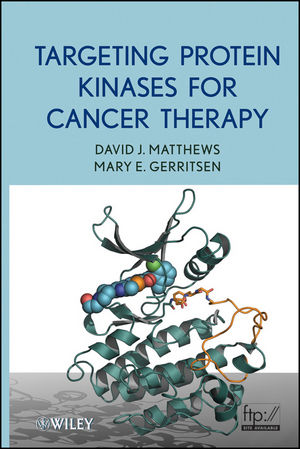Targeting Protein Kinases for Cancer TherapyISBN: 978-0-470-22965-1
Hardcover
720 pages
February 2010
 |
||||||
"The comprehensive coverage makes the book highly recommendable for beginners and expert researchers in oncology and should be present on their shelves." (ChemMedChem, November 2010)
"This excellent book is a comprehensive review of protein kinases
in the context of their roles in human cancer. ... [It] is an
excellent resource for scientists involved in selecting potential
drug targets and optimization of compounds that are likely to be
effective. The involvement of protein kinases in cancer, and
strategies for selecting drug targets is thoughtfully discussed,
and protein structures, domains and sites of regulation are
described in depth and in ways that are easy to follow and
understand. Individual kinases are described from the biological
perspective and in the context of efforts to target them, often
with case studies to illustrate specific points in exquisite
detail. Understanding these proteins at this level of detail is
essential to understand how they can be targeted and what we can
expect to observe in the clinic. Following description of the
kinases themselves and their function and regulation in signaling
pathways, and cell cycle control, the second half of this book
describes kinase inhibitors and experience gained from analyzing
these compounds in vitro and in vivo. The final chapter addresses
challenges and future directions, including issues relating to
combinational therapy and systems biology. These big issues
complete the comprehensive tour of the world of kinases in the
context of cancer, from molecular details of drug-protein
interactions, through biology to clinical application. Considering
the success so far in targeting these enzymes in the clinic, and
the level of investment currently being made to developing new
kinase inhibitors for cancer therapy, there is no doubt that this
outstanding book will be a valuable asset to the large community of
chemists, biologists and clinicians involved in developing the next
generation of therapies."
—Frank McCormick, Director, UCSF Helen Diller Family Comprehensive Cancer Center
—Frank McCormick, Director, UCSF Helen Diller Family Comprehensive Cancer Center



